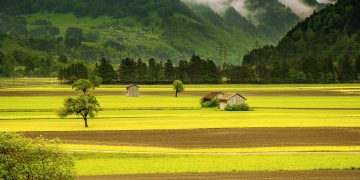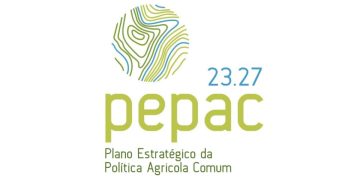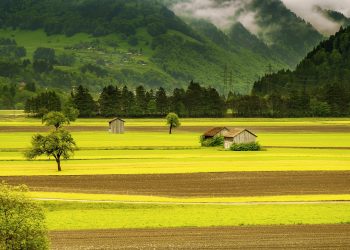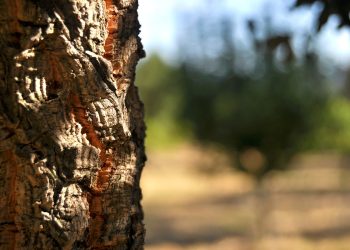For avocado farmers in Peru, it appears to be a boom time. Their production has increased sixfold over the past decade to meet growing demand abroad.
But appearances can deceive.
Farm foundations
These and other single-crop growers are now grappling with rising energy and fertiliser costs and increasing public awareness of the adverse effects of pesticides, according to Brenton Ladd, a researcher at the Scientific University of the South, or UCSUR, near the Peruvian capital Lima.
‘The industrial model of agriculture production begins to look less viable,’ Ladd said.
In agriculture, growing only one crop – monoculture – has tended to encourage increased output by lowering overall costs. But these so-called economies of scale have brought with them environmental threats resulting from intensive production.
Now, single-crop farming is increasingly an economic risk for producers themselves.
The EU is tackling both sets of challenges through new policies and research initiatives, harnessing its position both as a major agricultural market and as a leader in the fight to green economic activities including farming.
Food fashions
That’s where Peruvian avocados enter the picture, revealing the EU’s global influence in spurring a shift towards more ecological agriculture.
Avocados are very much in food fashion across Europe, as shown by the continent-wide abundance of trendy cafes serving avocado on toast.
This growing consumer demand has helped drive production growth in Peru, which is now the world’s third-largest producer of avocados. It trails only Mexico and Colombia in the global rankings.
In the Peruvian province of Ica along the Pacific Ocean coast, the surge has resulted in an intensive monoculture of avocados, which require about 10 times more water than tomatoes.
The province also grows grapes and asparagus to supply Europe during the winter months. Both grape and asparagus production can be water-intensive too.
Researchers to the rescue
The EU is funding research to help agricultural producers in Peru as well as 10 European countries operate sustainably and profitably. This is part of a series of European research initiatives advancing the EU’s 2030 biodiversity and Farm to Fork goals.
The project, called BioMonitor4CAP, runs for four years until the end of November 2026. The European countries represented include Austria, Belgium, the Czech Republic, the Netherlands and Poland.
“Agriculture can support biodiversity.
The researchers are designing advanced biodiversity monitoring systems to accelerate the shift towards sustainable farming.
Intensive agriculture destroys or damages natural habitats, emits significant quantities of greenhouse gases and eats into water supplies that are ever more precious as global warming accelerates.
In the EU, one in 10 farms followed ecological practices in 2021 – almost double the share a decade earlier. This shows that growing numbers of European farmers are doing their part to preserve biodiversity.
The EU has set a goal of increasing organic farming’s share to at least 25% by 2030. Recent changes to Europe’s Common Agricultural Policy, or CAP, will bring the target closer.
Green gains
The new CAP rules, which took effect in 2023, require more environmentally sustainable farming. For example, at least a quarter of direct payments for EU farmers must go for eco-schemes. In addition, a larger amount of financial aid is being directed to smaller farms.
While the size of agricultural holdings isn’t necessarily an indication of their ecological characteristics, many large farms feature intensive production. And although they account for just 1% of farms worldwide, big ones occupy an estimated 65% of all agricultural land.
Greater biodiversity can reduce business risks from droughts because a mix of crops diversifies water needs, according to Professor Christoph Scherber, head of the Centre for Biodiversity Monitoring at the Leibniz Institute for the Analysis of Biodiversity Change in Germany.
He said crop variation can also lead to general increases in agricultural output.
‘It is important to show that agriculture can support biodiversity but also to acknowledge that biodiversity itself can bring higher production to farming,’ said Scherber, who coordinates BioMonitor4CAP.
The project brings together 22 companies, universities, agricultural organisations and other partners in Europe and Peru.
On-site tests
Biodiversity monitoring is tricky because it can’t be reduced to a single main indicator. Moreover, such diversity can be measured at various levels – the ecosystem, the species and even, within species, the genetic. Each requires methodical identification.
A team that includes ecologists, agronomists, ornithologists, soil scientists and biochemists is testing an existing technology called AudioMoth – a low-cost acoustic-monitoring device for tracking wildlife.
The researchers are also building on an insect catcher known as a “malaise trap” by producing a model that does no harm to small creatures.
‘A malaise trap is a tent-like insect trap that usually kills the insects,’ said Scherber. ‘We’re developing a trap where insects would only be photographed before flying away.’
Furthermore, the team is using traditional approaches like bird counting.
The researchers are deploying these monitoring systems on 22 sites, with five major ones being in Bulgaria, Finland, Germany, Portugal and the UK.
At each location, devices are placed in several one-kilometre squares to assess the diversity of species and habitats based on different agricultural practices in the region.
In Peru, UCSUR and a local avocado, grape and asparagus business called Agricola Chapi are part of the project.
For the production of avocados, which require pollination along with plenty of water, one challenge being tackled is a shortage of beehives to rent as a result of the industry’s rapid growth.
“The entire value chain needs to be involved if we are to achieve this potential.
To maintain its own pollinators, Agricola Chapi is establishing woodland areas with native plants to provide the needed habitat and food.
This follows an extensive experiment with a charcoal-like product called biochar that is made from waste biomass, contributes to carbon neutrality and improves soil quality.
UCSUR is working to facilitate the overall transition by Agricola Chapi.
‘BioMonitor4CAP is perfectly aligned with our needs for state-of-the-art technologies to monitor biodiversity,’ said UCSUR’s Ladd.
The results are meant to feed into further EU policies, including the CAP, boosting biodiversity in farming. Such steps will also support an EU goal to improve soil ecosystems in Europe as well as the service they provide to agriculture.
Plenty of potential
In a way, the BioMonitor4CAP researchers are picking up where a team under a French researcher named Dr Laure Latruffe left off.
Based at the French National Institute for Research on Agriculture, Food and the Environment, or INRAE, Latruffe led an earlier EU-funded project into the general prospects for ecological farming in Europe.
Called LIFT – an acronym for Low-Input Farming and Territories – the project ran for four years through April 2022. It surveyed agricultural practices involving more than 1 600 farmers in 12 European countries.
The results indicated that all European farms identified as practising “standard”, or non-ecological, agriculture have a “high potential” for adopting ecological practices, which include organic, agroecology and agroforestry.
But Latruffe, INRAE’s research director, said a range of actors beyond farmers in the EU food-supply chain must play a role in the transition.
‘The entire value chain needs to be involved if we are to achieve this potential,’ she said.
Broad-based action
The fertiliser industry needs to provide alternatives to synthetic products while retailers must be willing to offer ecological goods, according to Latruffe.
She said that, furthermore, governments should support farmers in the transition’s early stages to maintain incomes and consumers have to be willing to buy non-standard products like fruits and vegetables in unusual shapes.
For their part, countless farmers are interested in making the change because it can lead to technical, environmental and social improvements in agriculture, according to Latruffe.
She said that LIFT, which developed a tool to classify European farms based on their practices and compare their environmental, economic and social performances, will expand the EU’s ability to measure agricultural sustainability.
In that context, LIFT bolsters a new European law meant to improve the sustainability of the EU’s food systems through broader data collection. The legislation covers the Farm Sustainability Data Network, or FSDN, and was approved by EU governments in November 2023.
‘The FSDN is the right way forward,’ said Latruffe.
Research in this article was funded by the EU’s Horizon Programme. The views of the interviewees don’t necessarily reflect those of the European Commission. If you liked this article, please consider sharing it on social media.
O artigo foi publicado originalmente em Horizon, the EU Research and Innovation Magazine.

















































